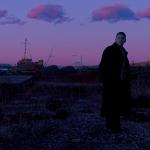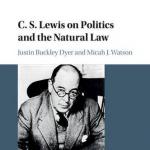In my continuing quest to be the ultimate anti-hipster, I’ve finally read Wicked long after it was famous (after, that is, both the book or for the musical were well known–the latter of which I know next to nothing about, and couldn’t name a song from if you held a gun to my head). And it was… fine. I mean, after all the hullabaloo that I vaguely remember about it, I was expecting something earth-shakingly amazing. Instead it was, well, it was fine.

If you’ve not read it (spoiler alert from here on out), Wicked claims to be the backstory of the Wicked Witch of the West from The Wizard of Oz. That is, Wicked is largely a prequel to Baum’s classic novel, if not so much to the excellent Hollywood version. If you’ve not read or see The Wizard of Oz, then what are you doing with your life? Stop reading reviews of the sub-par later adaptations and go read/watch the originals! (And yes, I realize the irony of not having read Wicked myself for so long–in my defense, the original book and movie have been around a lot longer, are much more culturally important, and are much better.)
In any case, we meet the Wicked Witch of the West as she is born under mysterious circumstances into a Munchkinlander family (no, really). She is raised in the distant Quadling country by her missionary parents, attends college in the glamorous/opulent Glicken, resists the tyrannical Wizard in the Emerald City, and finally settles into the land of the Winkies in the West, where she accepts the moniker of “Wicked Witch.” And as with all of us, throughout her life she ponders the answers to questions like “is there a God?” “does He care about us?” “do I have free will?” “is there such a thing as the soul?” “what is evil?” and so on. And like many people, she suspects that the answer to these questions is different for her than it is for others.
All of which to say that the clear purpose of this book is to humanize the Wicked Witch of the West by telling the whole of her story. (If that’s not clear on reading, the publisher helpfully puts it on the front and back cover.)
By and large, Wicked is fine. It’s not earth-shakingly great; it’s not terrible; it’s just fine. The plot is interesting; the writing is solid enough; the characters are mildly interesting.
And yet, there are a couple of weaknesses that keep this from being a great book–or even a solidly good one. For one thing, the theological rumination is so heavy-handed as to be a distraction. Yes, all of us wonder about God and evil and free will and such. And yes, maybe we even do so in extensive conversations with others. But there is also a point in a novel when it becomes either a distraction or so obvious a bias that the reader doesn’t really believe it is organic to the character.
The bigger weakness is that I’m not entirely convinced that Maguire cares at all about Oz. While he clearly has a story he wants to tell, characters he wants to watch develop, and ideas he wants to explore, at no point is it clear that any of this needs to happen in Baum’s imaginative world. There is no delight in telling a story about Oz; no sense of wonder at being in the place we’ve all grown up loving; no joy in learning something new about a mysterious land. Yes, Oz isn’t always a safe place, and it’s not necessarily the sort of place I’d want to spend my life in. And yet, there should still be a sense of joy about it. Go ahead and say the word “Munchkinlander” out loud and see if just saying the word doesn’t make you smile. In that sense, this is a book along the lines of Tim Burton’s Batman or Sleepy Hollow, where the feel is very much that the source materials are little more than a vehicle for what Burton really wants to say. I’ve not read the sequels, so maybe I’m being unfair here. But Wicked feels more like an author’s personal project that they thought would be more successful if it were latched onto something already beloved.
None of which is a reason not to read the book. Again, it’s fine and worth taking the time to read. Just be aware that it won’t live up to the measure of the original or the hype generated by the musical.
Dr. Coyle Neal is co-host of the City of Man Podcast and an Assistant Professor of Political Science at Southwest Baptist University in Bolivar, MO, where he says “Munchkinlander” all the time just for the heck of it.













